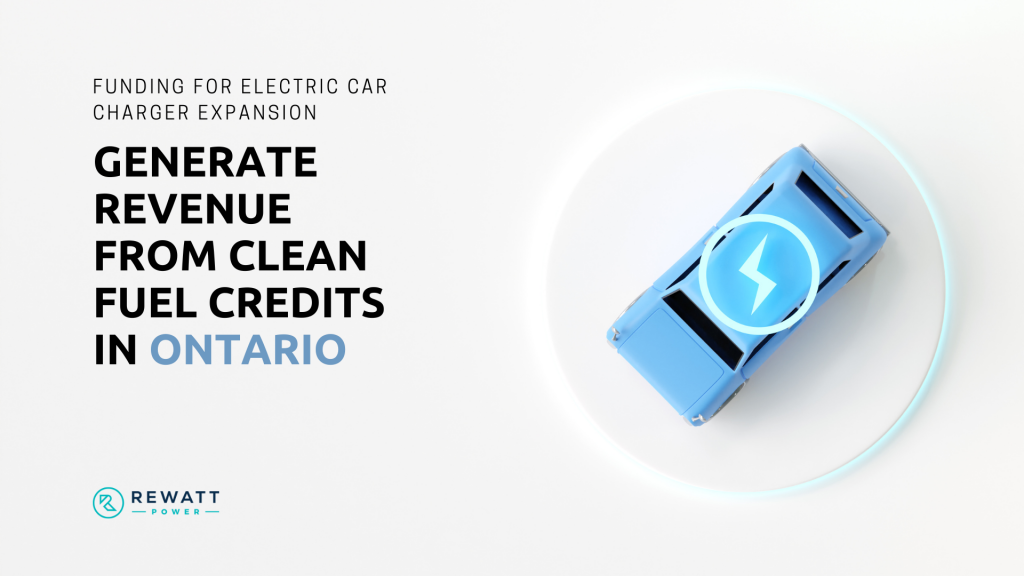This post is the main article for the Incentives for EV Charger Installation series of articles.
You can go to the main article to view earnings in different Canadian provinces.
Use-Case: Ontario
For 100,000 kWh of energy supplied per year in Ontario over five years
What is 100,000kWh per year equivalent to? Here are some examples.
| Light-Duty (< 6,000 lbs. curb weight) | Heavy-Duty | Marine | |
|---|---|---|---|
| Number of CFR Credits over 5 years | 618 | 761 | 462 |
| CFR Credit Price (Rewatt estimates $150/credit, but this can increase to max. $300/credit based on demand) | $150.00/credit | $150.00/credit | $150.00/credit |
| Gross Revenue over 5 year term | $92,700 | $114,150 | $69,300 |
| Gross Revenue over 10 year term | $179,100 | $220,350 | $133,500 |
| Transaction and Admin Fees* | 25 to 10%, sliding scale by company volume | 25 to 10%, sliding scale by company volume | 25 to 10%, sliding scale by company volume |
| NET REVENUE over 5 years | $69,525 – $83,430 | $85,612 – $102,735 | $51,975 – $62,370 |
| NET REVENUE over 10 years (with optional renewal) | $137,715 – $161,190 | $173,692 – $198,315 | $100,125 – $120,150 |
Recall that the purpose of the Clean Fuel credits for EV chargers is to reward the avoidance of CO2 emissions from vehicles. Here are some observations:
- Heavy-duty electric vehicles (such as buses and commercial vehicles) earn more credits because they displace diesel and fuel-guzzling vehicles.
- *Transaction and administrative fees: As with all regulated carbon markets, credits must be verified by a 3rd party auditor, which adds significant costs. However, Rewatt’s model is to work on a sliding fee schedule based on volume across an organization’s group of sites (not just one). This is most beneficial for fleets and network operators.
- The amount of money is linearly proportional to the energy supplied. If a charge site supplies 10 times more energy than 100,000 kWh, then it’s a good estimate that it will earn 10x more gross revenue.

CLEAN FUEL CREDITS for EV CHARGERS





